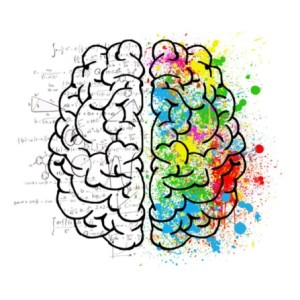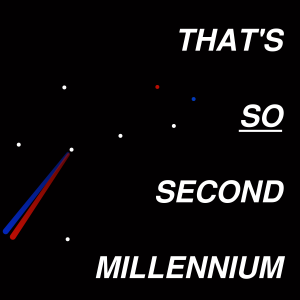
- Podcast Features
-
Monetization
-
Ads Marketplace
Join Ads Marketplace to earn through podcast sponsorships.
-
PodAds
Manage your ads with dynamic ad insertion capability.
-
Apple Podcasts Subscriptions Integration
Monetize with Apple Podcasts Subscriptions via Podbean.
-
Live Streaming
Earn rewards and recurring income from Fan Club membership.
-
Ads Marketplace
- Podbean App
-
Help and Support
-
Help Center
Get the answers and support you need.
-
Podbean Academy
Resources and guides to launch, grow, and monetize podcast.
-
Podbean Blog
Stay updated with the latest podcasting tips and trends.
-
What’s New
Check out our newest and recently released features!
-
Podcasting Smarter
Podcast interviews, best practices, and helpful tips.
-
Help Center
-
Popular Topics
-
How to Start a Podcast
The step-by-step guide to start your own podcast.
-
How to Start a Live Podcast
Create the best live podcast and engage your audience.
-
How to Monetize a Podcast
Tips on making the decision to monetize your podcast.
-
How to Promote Your Podcast
The best ways to get more eyes and ears on your podcast.
-
Podcast Advertising 101
Everything you need to know about podcast advertising.
-
Mobile Podcast Recording Guide
The ultimate guide to recording a podcast on your phone.
-
How to Use Group Recording
Steps to set up and use group recording in the Podbean app.
-
How to Start a Podcast
-
Podcasting
- Podcast Features
-
Monetization
-
Ads Marketplace
Join Ads Marketplace to earn through podcast sponsorships.
-
PodAds
Manage your ads with dynamic ad insertion capability.
-
Apple Podcasts Subscriptions Integration
Monetize with Apple Podcasts Subscriptions via Podbean.
-
Live Streaming
Earn rewards and recurring income from Fan Club membership.
-
Ads Marketplace
- Podbean App
- Advertisers
- Enterprise
- Pricing
-
Resources
-
Help and Support
-
Help Center
Get the answers and support you need.
-
Podbean Academy
Resources and guides to launch, grow, and monetize podcast.
-
Podbean Blog
Stay updated with the latest podcasting tips and trends.
-
What’s New
Check out our newest and recently released features!
-
Podcasting Smarter
Podcast interviews, best practices, and helpful tips.
-
Help Center
-
Popular Topics
-
How to Start a Podcast
The step-by-step guide to start your own podcast.
-
How to Start a Live Podcast
Create the best live podcast and engage your audience.
-
How to Monetize a Podcast
Tips on making the decision to monetize your podcast.
-
How to Promote Your Podcast
The best ways to get more eyes and ears on your podcast.
-
Podcast Advertising 101
Everything you need to know about podcast advertising.
-
Mobile Podcast Recording Guide
The ultimate guide to recording a podcast on your phone.
-
How to Use Group Recording
Steps to set up and use group recording in the Podbean app.
-
How to Start a Podcast
-
Help and Support
- Discover

We pick up from last week's episode with the next speaker. Kara Lamb followed Andrew Sicree; her research is about the atmosphere and climate. She mostly talked about climate, and got a ways into specifics about her research on black carbon soot in the atmosphere. She did stop to draw a parallel between Laudato Si and Pacem in Terris, that in both cases the Popes stopped to address humanity at large and not just the Church.
Juan Martin Maldacena was after her, and was presented the St. Albert Award. You don't schedule Juan Maldacena and not have him talk about his own physics research; he is famous for research on workable forms of string theory in anti-de Sitter space and some results on the shape and nature of black holes. His talk was very technical and rather hard to summarize, but an intriguing aspect of it was the recurring notion that black hole singularities and the original singularity of the Big Bang might have a lot in common.
Sunday morning after Mass Michael Dennin led off with a talk structured around a book called "The Big Picture" by somebody I think I've heard of but don't know why named Sean Carroll. In this book Carroll apparently divides reality into "poetic naturalism", where "poetic" means "stories we tell ourselves about large complicated objects" and "naturalism" means "quantum physics, which is actually reality". Dennin made four points:
- Emergence. Reality does not appear to be just quantum physics (or, I would elaborate, not even just a unified theory that somehow gets gravity and relativity united with quantum physics). There are really new laws that emerge as you go to larger, composite, varied objects...the laws of thermodynamics, entropy in particular, are an example.
- Physical reality. It's a little much to talk about "reality" so cavlierly; it ignores basically metric tons of philosophical questions people have spent centuries debating. Is physical reality basically sense data? Is it the particles we theorize to be out there to explain, ultimately, our sense data in the context of the experiments we do and the natural objects we observe? Isn't there nonphysical reality: mathematics, wavefunctions (they can't be completely physical), conscious reality / qualia? How can we be sure there aren't nonphysical "forces" acting on physical objects? In some way, don't they have to? (mathematics and logic in some way constrain reality, that's a rumination of mine while writing this)
- Free will...the Comptonesque observation that quantum physics leave room for this nonphysical soul or mind to affect the physical body
- MIracles. Dennin actually led off the talk with an exercise, asking us to define miracles, and then he went on a fairly vigorous campaign against the idea that miracles ever incorporate the violation of physical law, or at least that they require it, that that should be in the definition. I noted "Contrasting focus on God's will/purpose..." but I cannot really reconstruct what he seemed to be driving at.
Craig Lent, a professor at Notre Dame, went next and gave an interesting talk that interfaced with others. He actually seemed to conflict with Barr in that he commented early on that the "state vector," which had be be the wavefunction since it had the same Greek letter psi for its symbol, contained all the information possible to have about a system and not just one observer's (the concept Barr used). He also addresses the measurement problem, but my note broke off mid-sentence. He went on to summarize the content of Scarani's talk, that Bell inequality experiments all show that the universe is not deterministic. He then addresses the claim that while atom-scale particles show quantum indeterminism, larger stuff does not, and nerves are enough larger that the human brain must be deterministic. That's probably not true; even 10,000 atomic mass unit molecules like neural transmitters show quantum behavior in experiments. We are left again with the Arthur Compton point that while obviously physics constrains us, our brains are not deterministic machines; if our souls are not affecting them, then at the very least some of their functionality is random.
The final talk was by (Padre) Javier Sanchez-Canizares on "Mind, Decoherence, and the Copenhagen Interpretation." This again comments on many of the topics in previous talks. Unfortunately the talk seemed to paw about problems already discussed without coming to any new realizations. I cannot tell from my notes whether I learned anything about decoherence, which I was really hoping to do; I think I had to look it up afterward, and even then the answers I've found so far are not satisfying. He asked the "Wigner's friend" question that Barr mentioned about the "cut" between the observer and the system in a quantum physics observation. He also made some intriguing comments on the nature of classical physics: if quantum physics is reality, why is it so hard to get rid of classical physics terminology? We still describe things that way. A recent physicist, Zurek, comments that classical physics entities somehow embody a "survival of the fittest" (the sort of comment I start questioning for influence of the divine name of evolution). Heisenberg apparently said that classical physics terms are just unavoidably part of how humans interact with the world.
More Episodes
 2026-01-25
2026-01-25
 2025-10-29
2025-10-29
 2022-11-21
2022-11-21
 2022-08-30
2022-08-30
 2022-06-06
2022-06-06
 2022-02-28
2022-02-28
Create your
podcast in
minutes
- Full-featured podcast site
- Unlimited storage and bandwidth
- Comprehensive podcast stats
- Distribute to Apple Podcasts, Spotify, and more
- Make money with your podcast
It is Free
- Privacy Policy
- Cookie Policy
- Terms of Use
- Consent Preferences
- Copyright © 2015-2026 Podbean.com




